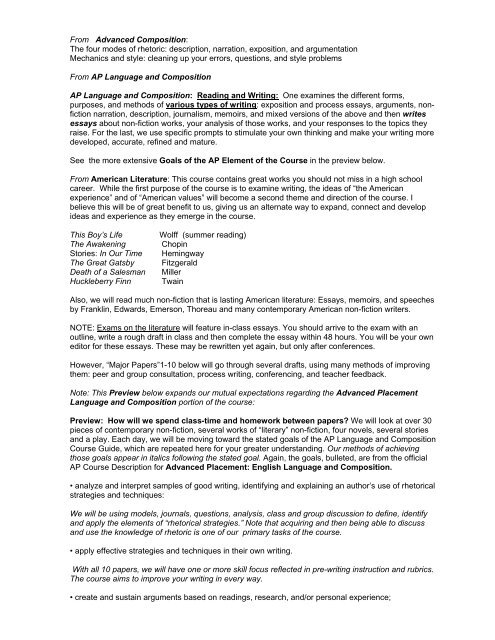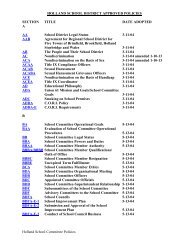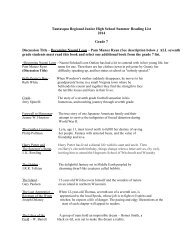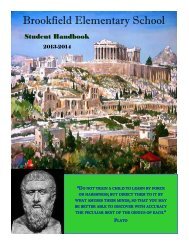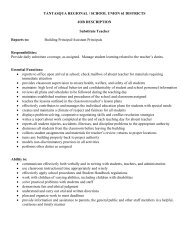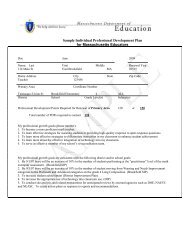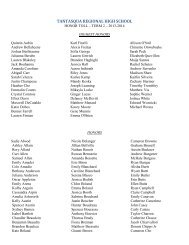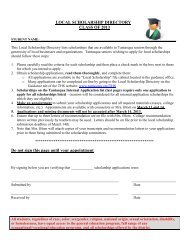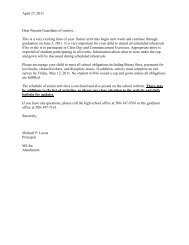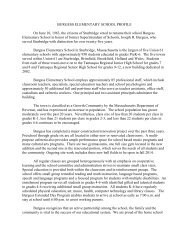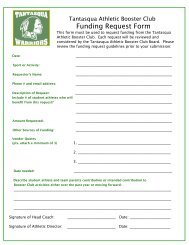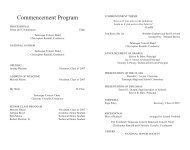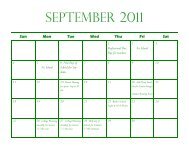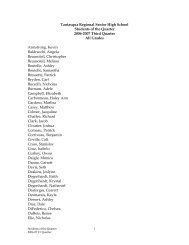AP Language and Composition - Tantasqua.org
AP Language and Composition - Tantasqua.org
AP Language and Composition - Tantasqua.org
Create successful ePaper yourself
Turn your PDF publications into a flip-book with our unique Google optimized e-Paper software.
From Advanced <strong>Composition</strong>:<br />
The four modes of rhetoric: description, narration, exposition, <strong>and</strong> argumentation<br />
Mechanics <strong>and</strong> style: cleaning up your errors, questions, <strong>and</strong> style problems<br />
From <strong>AP</strong> <strong>Language</strong> <strong>and</strong> <strong>Composition</strong><br />
<strong>AP</strong> <strong>Language</strong> <strong>and</strong> <strong>Composition</strong>: Reading <strong>and</strong> Writing: One examines the different forms,<br />
purposes, <strong>and</strong> methods of various types of writing: exposition <strong>and</strong> process essays, arguments, nonfiction<br />
narration, description, journalism, memoirs, <strong>and</strong> mixed versions of the above <strong>and</strong> then writes<br />
essays about non-fiction works, your analysis of those works, <strong>and</strong> your responses to the topics they<br />
raise. For the last, we use specific prompts to stimulate your own thinking <strong>and</strong> make your writing more<br />
developed, accurate, refined <strong>and</strong> mature.<br />
See the more extensive Goals of the <strong>AP</strong> Element of the Course in the preview below.<br />
From American Literature: This course contains great works you should not miss in a high school<br />
career. While the first purpose of the course is to examine writing, the ideas of “the American<br />
experience” <strong>and</strong> of “American values” will become a second theme <strong>and</strong> direction of the course. I<br />
believe this will be of great benefit to us, giving us an alternate way to exp<strong>and</strong>, connect <strong>and</strong> develop<br />
ideas <strong>and</strong> experience as they emerge in the course.<br />
This Boy’s Life<br />
The Awakening<br />
Stories: In Our Time<br />
The Great Gatsby<br />
Death of a Salesman<br />
Huckleberry Finn<br />
Wolff (summer reading)<br />
Chopin<br />
Hemingway<br />
Fitzgerald<br />
Miller<br />
Twain<br />
Also, we will read much non-fiction that is lasting American literature: Essays, memoirs, <strong>and</strong> speeches<br />
by Franklin, Edwards, Emerson, Thoreau <strong>and</strong> many contemporary American non-fiction writers.<br />
NOTE: Exams on the literature will feature in-class essays. You should arrive to the exam with an<br />
outline, write a rough draft in class <strong>and</strong> then complete the essay within 48 hours. You will be your own<br />
editor for these essays. These may be rewritten yet again, but only after conferences.<br />
However, “Major Papers”1-10 below will go through several drafts, using many methods of improving<br />
them: peer <strong>and</strong> group consultation, process writing, conferencing, <strong>and</strong> teacher feedback.<br />
Note: This Preview below exp<strong>and</strong>s our mutual expectations regarding the Advanced Placement<br />
<strong>Language</strong> <strong>and</strong> <strong>Composition</strong> portion of the course:<br />
Preview: How will we spend class-time <strong>and</strong> homework between papers We will look at over 30<br />
pieces of contemporary non-fiction, several works of “literary” non-fiction, four novels, several stories<br />
<strong>and</strong> a play. Each day, we will be moving toward the stated goals of the <strong>AP</strong> <strong>Language</strong> <strong>and</strong> <strong>Composition</strong><br />
Course Guide, which are repeated here for your greater underst<strong>and</strong>ing. Our methods of achieving<br />
those goals appear in italics following the stated goal. Again, the goals, bulleted, are from the official<br />
<strong>AP</strong> Course Description for Advanced Placement: English <strong>Language</strong> <strong>and</strong> <strong>Composition</strong>.<br />
• analyze <strong>and</strong> interpret samples of good writing, identifying <strong>and</strong> explaining an author’s use of rhetorical<br />
strategies <strong>and</strong> techniques:<br />
We will be using models, journals, questions, analysis, class <strong>and</strong> group discussion to define, identify<br />
<strong>and</strong> apply the elements of “rhetorical strategies.” Note that acquiring <strong>and</strong> then being able to discuss<br />
<strong>and</strong> use the knowledge of rhetoric is one of our primary tasks of the course.<br />
• apply effective strategies <strong>and</strong> techniques in their own writing.<br />
With all 10 papers, we will have one or more skill focus reflected in pre-writing instruction <strong>and</strong> rubrics.<br />
The course aims to improve your writing in every way.<br />
• create <strong>and</strong> sustain arguments based on readings, research, <strong>and</strong>/or personal experience;


